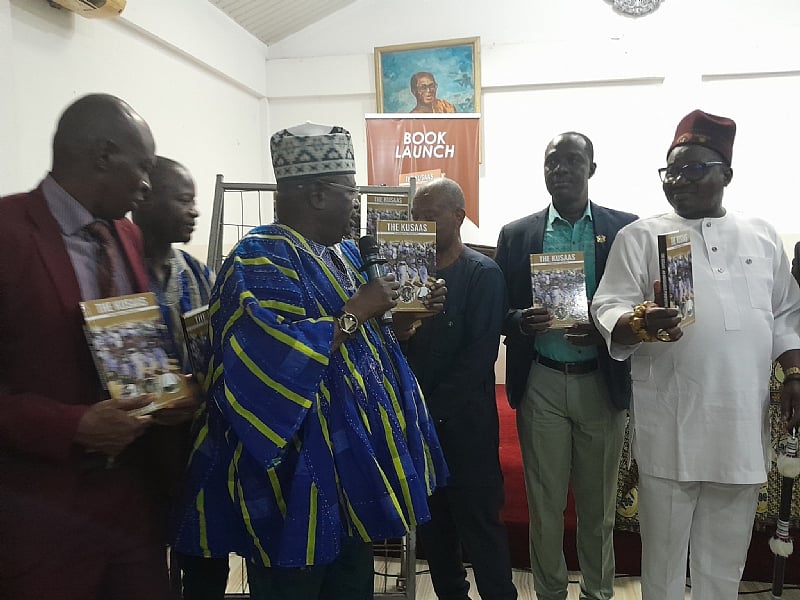The book The Kusaas: An Indigenous Perspective was launched in an impressive ceremony at the Institute of African Studies, University of Ghana, on Wednesday, April 3, 2025.
Hon. Cletus Apul Avoka, who chaired the event and officially launched the book, described the occasion as unique, noting that it marked the first time a book about the Kusaas has been launched.
The book, titled The Kusaas: An Indigenous Perspective, is the premier publication focusing on the history and culture of the Kusaas. It was presented and commissioned by individuals native to the land, who have lived, researched, and experienced the narrative of their people.
Comprising twelve chapters, the book covers a wide range of topics that offer a comprehensive understanding of the Kusaas’ origins and their struggles, including the challenges to their peace and the near erosion of their identity. Several chapters explore the culture, language, traditions, and education in Kusuag.
The launch was attended by distinguished individuals from the region, including professors and lecturers.
ACP (Rtd) James Azumah Abbas Abbah, speaking on behalf of the authors, remarked that although the Kusaas’ culture and songs were once destroyed, their voices have not been silenced.
Dr. Hasiyatu Abujabar, speaking on behalf of the editors, shared her journey of witnessing the book grow from an idea into a publication that will inform people about the culture of the Kusaas.
Prof. Samuel Abubakari, in his review of the book, stated that it has arrived at the perfect time and will serve as an important resource for both general readers and academic researchers.
Hon. Cletus Avoka, in his speech, fondly recalled his days at Navrongo Secondary School, where he was known for his singing and dancing. He expressed confidence that the book would help revive the culture of the Kusaas.
The publisher, Mr. Fred Larbi, CEO of Digibooks Ghana Ltd., thanked the authors and editors for their dedication in producing the book, which took seven years to complete due to extensive research and careful editing.
The first copy of the book was auctioned and purchased for 20,000 GHC by an anonymous individual.
The editors of the book are Hasiyatu Abubakar, Agnes A. Apusigah, and A. Agoswin Musah.


